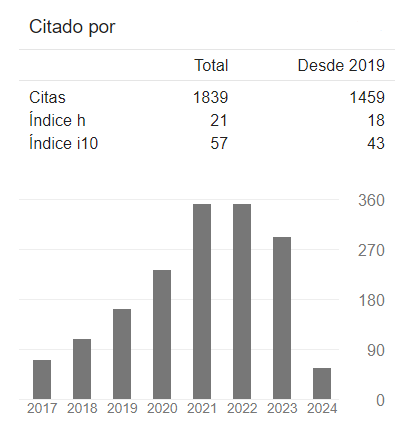A Freudian perspective on the origin of the modern state: relationship with totemism
DOI:
https://doi.org/10.24142/raju.v19n38a14Keywords:
Sigmund Freud, State, Family, Totem and Taboo, United States, Latin AmericaAbstract
Contemporary society is facing an evolution towards an uncertain future, marked by technological and scientific progress. Traditional institutions, such as marriage and family, and social structures, like educational institutions, are affected by this dynamic. In Latin America, history is marked by internal conflicts and struggles for national identity, including civil wars and fights against drug trafficking. Despite the importance of understanding history to build a better future, current society tends to ignore it, focusing on the present. The proposed research seeks to explore the relationship between Freud’s totems’ myth and the emergence of the modern State in the independence of the United States. To do this, we will examine how Freud’s theory on the origin of culture and society can influence the understanding of the State. Key texts by Freud and contemporary analyses will be reviewed to understand this relationship. The research is justified by its innovative approach to exploring the origin of the modern State from a Freudian perspective, seeking new insights and understandings on the subject.
References
Assoun, P. L. (2003). Freud y las ciencias sociales. Ediciones de Serbal.
Brunner, J. (2016). Freud y el gobierno del derecho. De Tótem y tabú a la teoría psicoanalítica del derecho. Derecho PUCP, (77), 27-48.
Dorado, J. (2015). Freud y los gobiernos terminables e interminables. Desafíos, 27(2), 53-97.
Chul Han, B. (2016). Topología de la violencia. Herder.
Chul Han, B. (2017). La agonía del eros. Herder.
Chul Han, B. (2022). Capitalismo y pulsión de muerte. Herder
Congreso Continental. John Hancok (1776). Declaración de independencia de los Estados Unidos de América 1776. https://www.diputados.gob.mx/biblioteca/bibdig/const_mex/decla_1776.pdf
Freud, S. (1913). Tótem y tabú. En Obras completas XIII (pp. 2-164). Amorrortu Editores.
Freud, S. (1930). El malestar en la cultura. En Obras completas XXI (pp. 59-140). Amorrortu Editores.
Freud, S. (1933).¿Por qué la guerra? En Obras completas XXII (pp. 180-198). Amorrortu editores.
Freud, S. (1932-1933). Nuevas conferencias de introducción al psicoanálisis. 32ª conferencia: Angustia y vida pulsional. En Obras completas XXII (pp. 75-104). Amorrortu Editores.
Freud, S. (1939). Moisés y la religión monoteísta. En Obras completas XXIII ( pp. 1-132). Amorrortu Editores.
Jefferson, T. y Madison, J. (1791). Carta de Derechos de los Estados Unidos. National Archives. https://www.archives.gov/espanol/declaracion-de-derechos.
Jiménez, F. (1993). Freud y política. Revista Latinoamericana de Psicología, 25, 105-113.
Leguil, F. (2001). Política del psicoanálisis y psicoanálisis de la política. Editorial Universidad de Antioquia.
Pirenne, H. (1971). Las ciudades de la Edad Media. Alianza Editorial.
Trajtemberg, P. (s. f.). Discurso freudiano. Escuela de Psicoanálisis. https://www.discursofreudiano.com/el-crimen-de-las-hermanas-papin-totem-y-tabu-de-sigmund-freud-1913-en-el-origen-de-la-cultura/.
Published
How to Cite
Issue
Section
License
Copyright (c) 2024 Simón Bolívar Serna

This work is licensed under a Creative Commons Attribution-NonCommercial-ShareAlike 4.0 International License.
La rivista consente all'autore (s) di mantenere i diritti di pubblicazione senza restrizioni.
Le journal permet à l'auteur (s) de conserver les droits de publication sans restrictions.
The journal allows the author (s) to retain publication rights without restrictions.
La revista le permite al autor(es) retener los derechos de publicación sin restricciones
Die Zeitschrift ermöglicht es dem / den Autor (en), Veröffentlichungsrechte ohne Einschränkungen zu behalten.
A revista permite que os autores mantenham os direitos de publicação sem restrições.











































